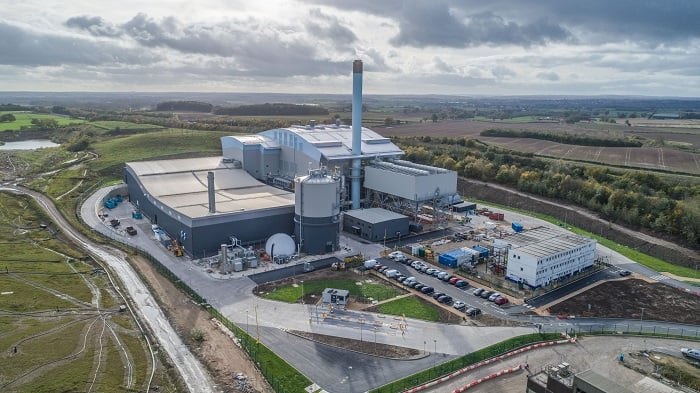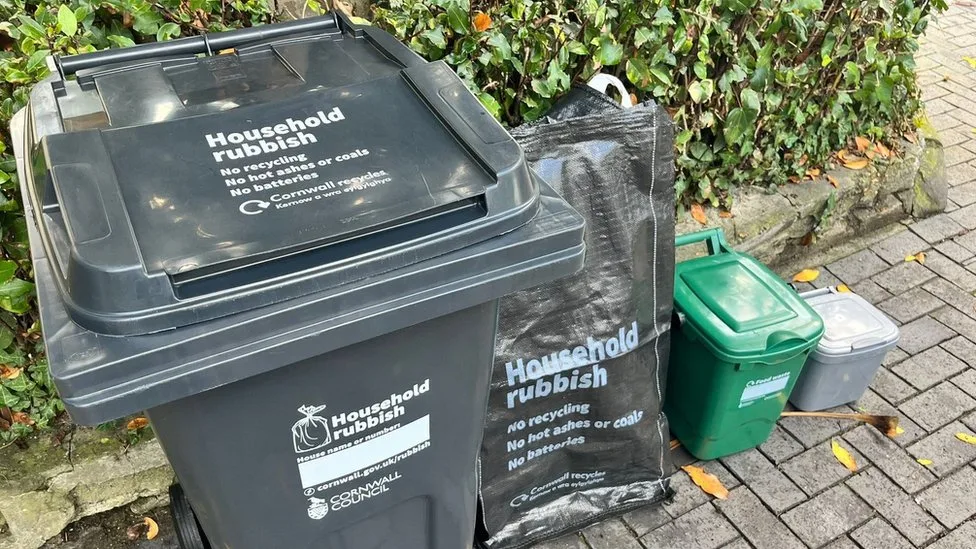The updated “milestone” plan, approved on 27 April, sets out the principles guiding planning decisions for minerals and waste developments across York, North Yorkshire, and the North York Moors National Park until 2030.
The 6,718 square kilometre area “already has a relatively high degree of self-sufficiency in capacity for some wastes”, the plans says.
Much of the area’s waste is processed at Amey’s 320,000 tonnes per year capacity Allerton Waste Recovery Park project in North Yorkshire, which became operational in 2018 and includes a mechanical treatment, anaerobic digestion and EfW plant (see letsrecycle.com story).
The plan says support will be given “through the granting of planning permission” for proposals which help achieve net self-sufficiency for waste at a level equivalent to expected arisings in the area by December 2030.
However, factors such as waste management policy and practice and “significant limitations in the availability of data” mean “it is not practicable to quantify future waste management capacity requirements with a very high degree of precision”, the plan says.
The plan adds that facilities proposed specifically to manage waste arising outside the area will not be permitted, “unless it can be demonstrated that the facility would represent the nearest appropriate installation for the waste to be managed.”
EfW
Meanwhile, among other policies, the plan states that proposals for “largescale” EfW projects with a capacity greater than 75,000 tonnes per annum will only be permitted, “where any heat generated can be utilised as a source of low carbon energy or, where use of heat is not practicable, the efficient recovery of energy can be achieved.”
And, it says provision of new capacity for the landfill of residual non-inert waste will be permitted where it can be demonstrated that it is the “only practicable option” and sufficient permitted capacity within the area is not available.
However, the plan notes that inert landfill is “less harmful to the environment” as it does not decompose to generate greenhouse gases to the same extent as biodegradable waste.
As such, the plan says: “It is therefore appropriate in some circumstances to provide policy support for this method of waste management.”
‘Milestone’
North Yorkshire county council, City of York council and North York Moors National Park Authority prepared the plan following a decision to work together in 2013.
The plan includes robust protection for residents and the environment
– Cllr Andrew Waller
Cllr Andrew Waller, City of York’s executive member for planning, said: “It is a milestone moment which ensures our newly adopted plan sets out the policies that will help guide any planning decisions for all minerals and waste developments over the next decade.”
He added: “The plan includes robust protection for residents and the environment to guide future planning applications for developments such as new or extended quarries and new waste management facilities, including recycling and treatment centres.”
Yorkshire
The area covered by the plan is described as “particularly large and diverse”, incorporating urban York, the “largely rural” North Yorkshire region, and the “very rural and sparsely populated” National Park.
A total of about 829,000 people live within the area, the plan says, of which 204,400 live in York and 23,200 live in the North York Moors National Park.
City of York council had a household waste recycling rate of 44.1% in the 2020/21 financial year, while North Yorkshire county council’s rate was 43.4%.
Related link
Minerals and waste joint plan












Subscribe for free